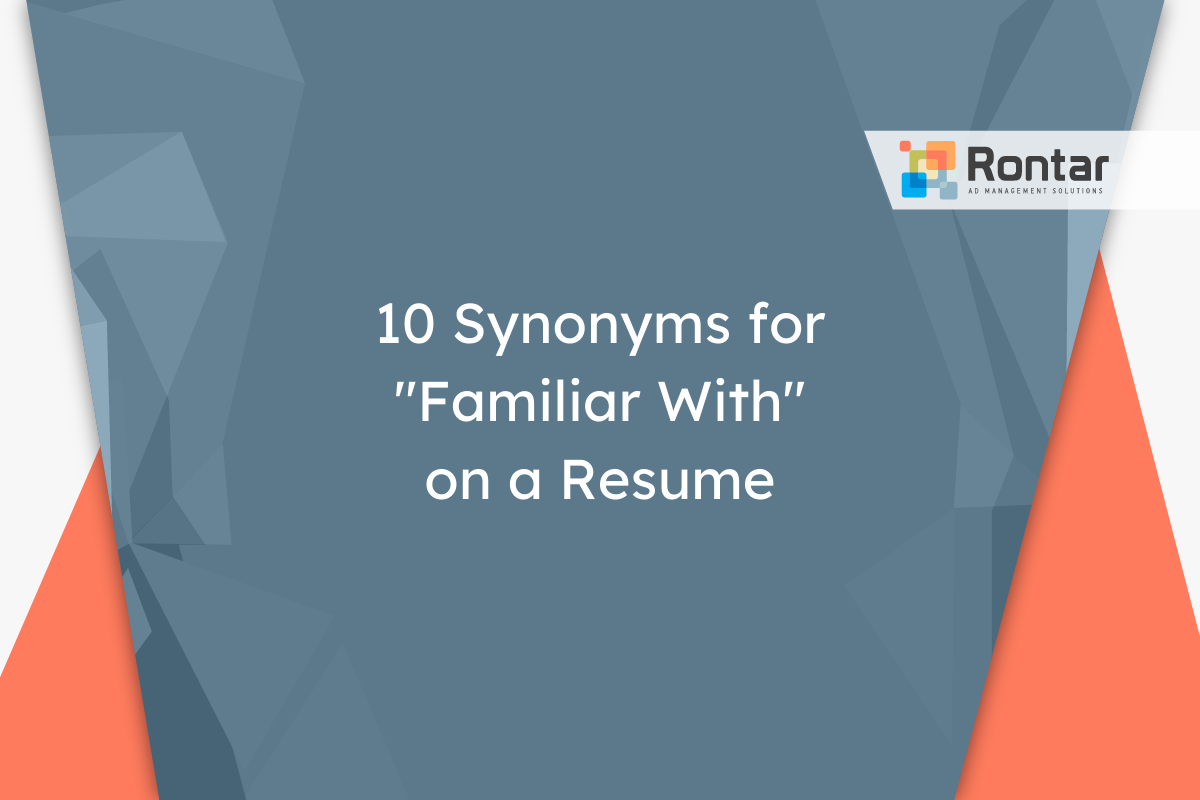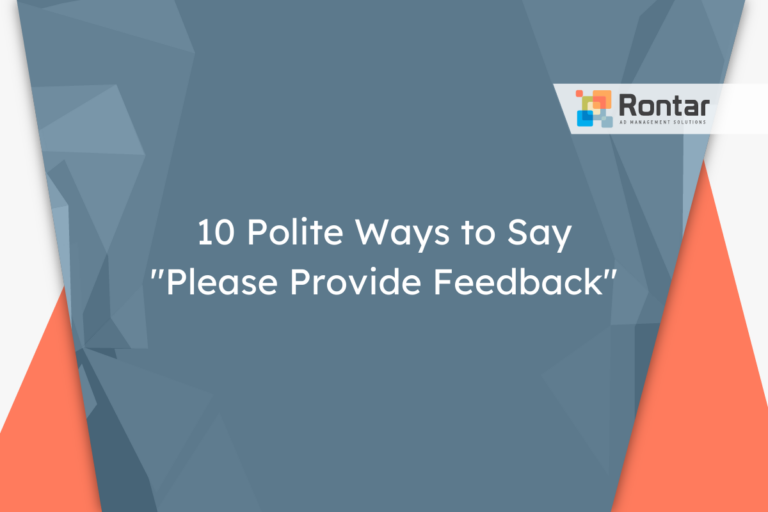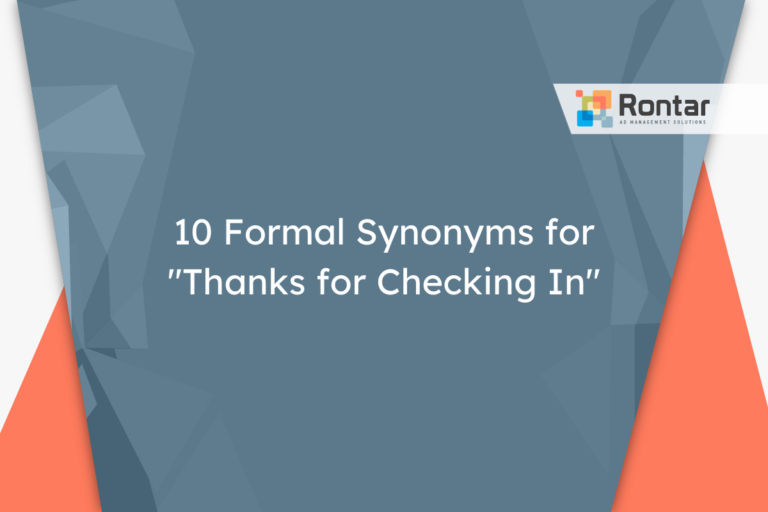10 Synonyms for “Familiar With” on a Resume

When writing a resume, saying you’re “familiar with” something can feel a bit weak or vague. You might want to show off your skills in a stronger way.
This article lists 10 different ways to express your knowledge and abilities, without just repeating “familiar with.” Using the right words can help your resume stand out and better describe your talents.
Is “Familiar With” a Good Resume Phrase?
Using “familiar with” on a resume can be a good choice, depending on what you’re trying to say. It’s a way to show that you know about something, but it doesn’t say you’re an expert. This phrase fits best when you want to list skills or tools you’ve had some experience with but aren’t deeply knowledgeable about yet.
For example:
Familiar with Microsoft Office Suite and basic HTML coding.
Pros:
- It’s honest about your level of skill.
- Shows you have a foundation to build on.
- Prevents over-promising your abilities.
Cons:
- It might suggest you’re not very skilled.
- Can be seen as vague or non-committal.
- May not stand out to employers looking for expertise.
Using “familiar with” is straightforward but sometimes you might want to pick a different word. If you’re trying to impress someone or show off your skills, using a synonym or an alternative might be better. This can make your resume sound more powerful and show that you’re more than just casually acquainted with a subject.
10 Other Ways to Say “Familiar With” on a Resume
When you want to express your knowledge level on your resume without repeating “familiar with,” consider using these 10 alternatives:
- Proficient in
- Skilled at
- Versed in
- Experienced with
- Knowledgeable about
- Adept at
- Comfortable with
- Accustomed to
- Aware of
- Competent in
1. Proficient in
Compared to “familiar with,” “proficient in” suggests a higher level of skill and confidence. It implies that not only do you understand the subject, but you can also perform tasks fluently. This alternative is more professional and shows that you’re ready to use your skills in practical situations.
We recommend using “proficient in” when applying for positions that require specific skills where you have strong competence. This choice signals to employers that you’re beyond the basics and can contribute immediately.
Here are two examples:
Proficient in Adobe Photoshop and graphic design concepts.
Developed a marketing campaign, demonstrating proficiency in content strategy and SEO.
2. Skilled at
“Skilled at” is similar to “familiar with” but indicates a more practical, hands-on experience. This phrase is informal yet professional, making it versatile for various roles and industries. It hints at your ability to apply your knowledge effectively.
This alternative shines in resumes targeting industries or jobs that value technical skills or craftsmanship. It’s a strong choice when you have applied your knowledge in a hands-on way and want to highlight that aspect.
Below are sample uses:
Skilled at social media management and community engagement.
Designed an efficient filing system, showing I'm skilled at organization.
3. Versed in
“Versed in” offers a blend of being educated and experienced in a subject, without explicitly stating a high level of expertise. This term is formal yet suggests a comfortable understanding and capability. It’s a step up from just being familiar with a concept, as it implies a stronger foundation.
It’s ideal for professional settings where you want to demonstrate both theoretical knowledge and the ability to apply it. “Versed in” fits well when you’re discussing subjects where you have substantial learning or experience.
Examples include:
Regularly analyzed data, showing I'm versed in statistical software.
Managed multiple projects, proving to be versed in project management methodologies.
4. Experienced with
Switching “familiar with” for “experienced with” elevates the perception of your knowledge to include direct, hands-on involvement. This phrase is professional and strongly suggests that you’ve applied your skills in practical settings, making it a robust choice for any resume.
Opt for “experienced with” when you have concrete examples of your work with certain tools, technologies, or methodologies. It’s especially suitable for roles that demand previous job experience in a similar position or industry.
Here are two samples:
Successfully led a team project, demonstrating I'm experienced with leadership and team collaboration.
Streamlined office communication by implementing a new software, showing my experience with change management.
5. Knowledgeable about
This synonym is much like “familiar with” but leans more towards theoretical knowledge or a broad understanding of a topic. “Knowledgeable about” is formal and suggests a well-rounded comprehension, possibly without extensive hands-on experience.
When you want to emphasize your comprehensive understanding of a subject area, even if you haven’t used it in a professional setting, “knowledgeable about” is a sound choice. It works well for academic positions or roles that require a strategic outlook.
For example:
I'm knowledgeable about modernist literature, especially the works of Virginia Woolf.
Conducted in-depth market research, proving to be knowledgeable about consumer trends.
6. Adept at
Choosing “adept at” signals that you’re not just familiar with something; you’re also skilled and capable. This term is professional and conveys an impressive level of proficiency. It implies that you can handle tasks related to this skill smoothly and effectively.
“Adept at” is perfect when you’re applying for jobs where you’ll need to jump in and perform tasks with minimal guidance. It indicates that you’re more than just acquainted with the area; you’re also efficient and resourceful.
Sample uses:
Quickly resolved technical issues, proving to be adept at troubleshooting.
Designed an award-winning campaign, highlighting my adeptness at creative strategy.
7. Comfortable with
This phrase is slightly less formal than “familiar with” but still appropriate for a resume. It suggests ease in using skills or tools, which is great for conveying confidence. “Comfortable with” implies you can perform tasks without struggle, though it doesn’t indicate mastery.
Consider using “comfortable with” for roles that require adaptability and the ability to work with different tools or environments without needing extensive training. It’s a way to say you’re ready and willing to tackle challenges using these skills.
Examples for guidance:
Managed several social media accounts, showing I'm comfortable with digital marketing tools.
Handled customer inquiries, demonstrating I'm comfortable with high-stress situations.
8. Accustomed to
“Accustomed to” is very similar to “familiar with” but carries a hint more of routine use or habitual exposure. It’s slightly more informal but still acceptable in a professional context. This alternative suggests that you’re not just aware of something; you’re used to incorporating it into your regular activities.
It suits scenarios where you want to emphasize your consistent engagement with a tool, process, or environment over time. “Accustomed to” is great for showing that you can easily adapt to and maintain performance within familiar settings.
Here’s how you might use it:
Ensured the team met strict deadlines, indicating I'm accustomed to fast-paced work environments.
Regularly updated the company blog, showing I'm accustomed to content management systems.
9. Aware of
“Aware of” is arguably the closest in meaning to “familiar with,” presenting knowledge that is less about hands-on skill and more about cognitive understanding. This phrase is informal and implies a basic level of recognition or acquaintance with a subject, rather than in-depth expertise.
Use “aware of” in contexts where it’s important to acknowledge your awareness of trends, methodologies, or technologies, even if you haven’t used them extensively in your work. It’s useful for jobs that require keeping up with fast-changing fields.
Check out these examples:
Kept up with the latest digital security trends, showing I'm aware of cybersecurity threats.
Participated in diversity training, proving I'm aware of inclusive workplace practices.
10. Competent in
“Competent in” communicates a reliable level of ability and assurance in your skills. It’s more professional than “familiar with” and indicates that you’re not only knowledgeable but also effective at applying your skills. This option suggests a balanced mix of theory and practice.
This phrase is particularly suited for applications where you need to show you have a good grasp and can reliably perform tasks related to the skill or tool mentioned. It conveys a sense of trustworthiness and capability.
As examples:
Delivered comprehensive client reports, showcasing my competence in data analysis.
Revised and optimized operational procedures, highlighting my competence in process improvement.
Final Thoughts
Choosing the right words for your resume is key to showing off your skills and experiences. The alternatives to “familiar with” provided here can help you appear more skilled and confident to potential employers. Every phrase has its place, depending on the message you want to send. Using a variety can make your resume more engaging and accurately reflect your abilities.






